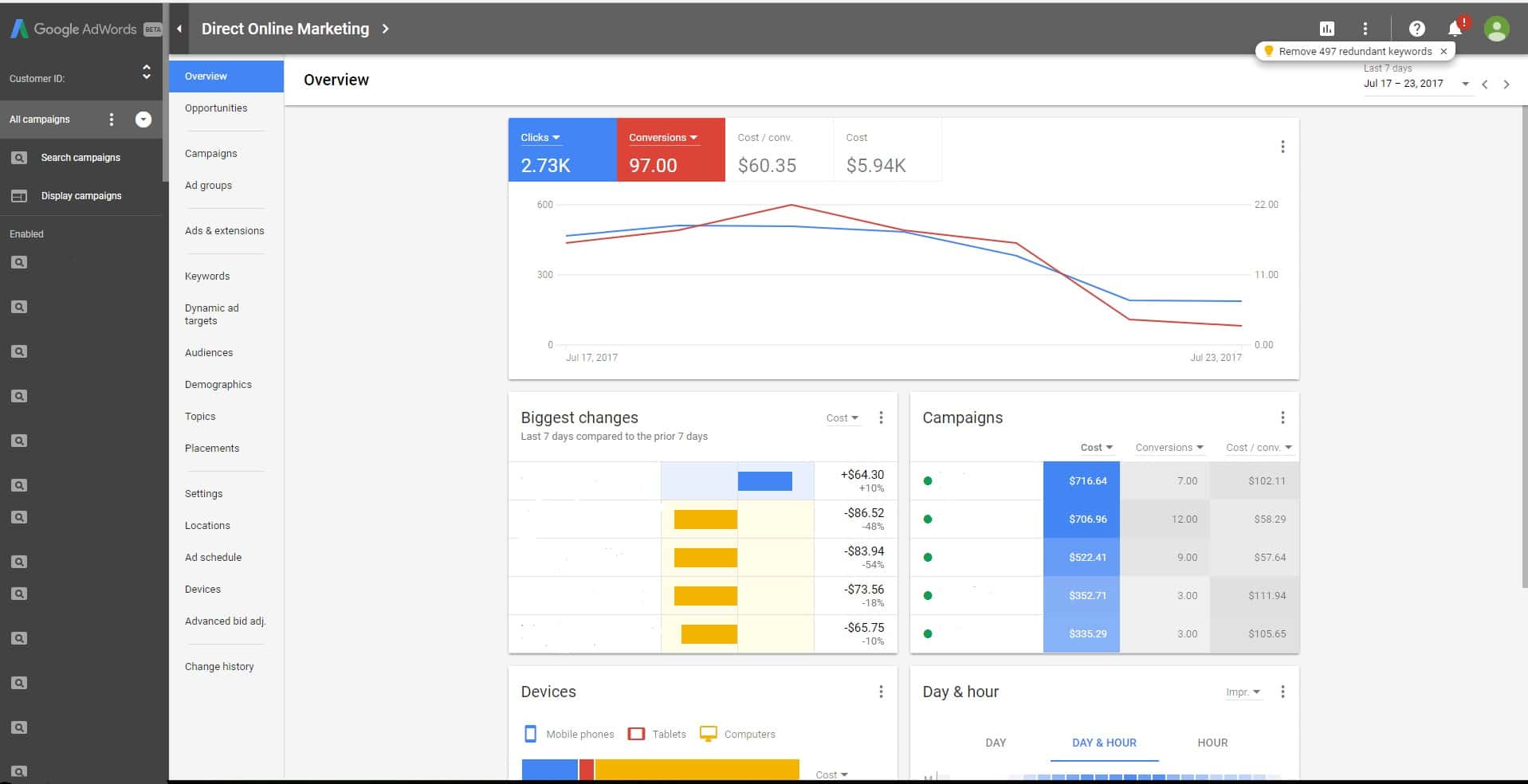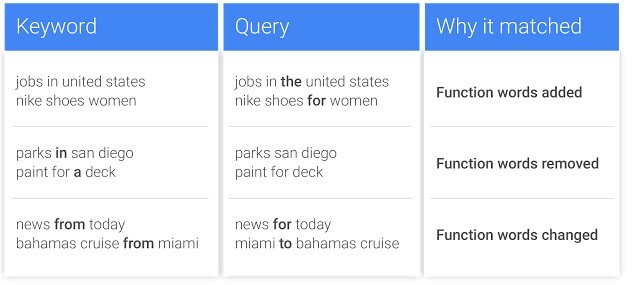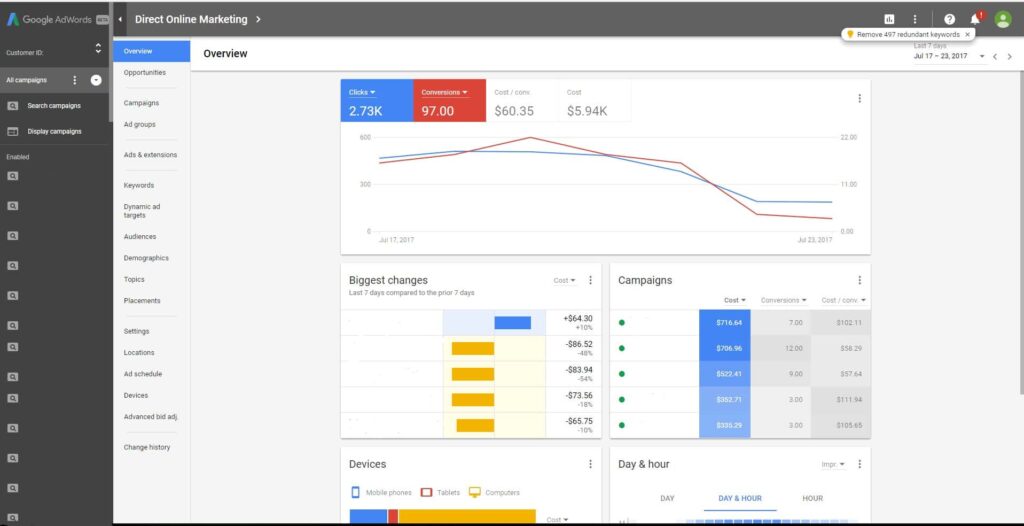
Google has recently updated its rules for exact match keywords with a looser, close variant matching. Before we get into the details of what that means for your AdWords account let us back up a step. Exact match keywords are words or phrases that will only allow your ads to show if that exact word or phrase is what the searcher types into the search box.
For example, if you are advertising on the exact match keyword [blue flat sneaker] so your ad will only show if the searcher searches that exact phrase without any variations. If the searcher types blue flat sneakers, then your ad will not show because exact match will not account for the plural variation of sneaker.
Close Variant Matching
With the close variant matching update, AdWords allows for small variations within exact match phrasing. This means that instead of entering an exact match keyword for all variations in quantities, word order, and function words, you can now just enter one key phrase that will encompass all those other keywords.
Examples of words reordered update:
Examples of function words update:
While the initial introduction of this update began a couple of months ago, our AdWords pros here at DOM are seeing it pick up momentum as the new AdWords interface beta sees wider adoption across accounts.
“Redundant Keywords”
In the new Google AdWords interface beta, there are now opportunities to remove what Google is calling “redundant keywords” due to this change in close variant matching.
AdWords will crawl your keywords and highlight any now redundant keywords (i.e. all those reordered and reworded keywords you have lurking in the bowels of your AdWords account).
Let’s say, you have [blue running shoe] and [blue running shoes] keywords. With the updates to close variant matching, you won’t need these hyper-specific variations of exact match keywords.
What this will mean for your AdWords account:
- Less clutter from so many granular keyword variations
- More time to manage all aspects of campaigns instead of hours spent sifting through keyword performance
- Less granular control over your accounts
- More reliance on Google’s intelligence to match your keywords to close variations. We’ve seen some plural exact match keywords outperform their singular counterpart. That would be the opposite of irrelevant to us.
So, we are recommending you keep all those extra variations for now since this opportunity is still in beta. However, we are excited to see what the finished update to AdWords will bring.






